Streisand effect
description: a phenomenon whereby an attempt to hide, remove, or censor a piece of information has the unintended consequence of publicizing the information more widely, usually facilitated by the Internet
21 results
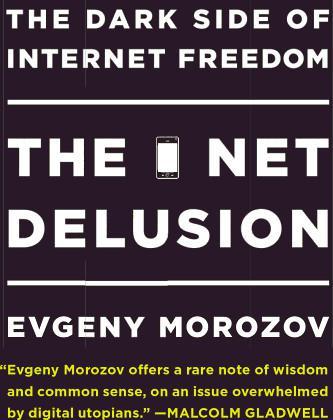
The Net Delusion: The Dark Side of Internet Freedom
by
Evgeny Morozov
Published 16 Nov 2010
When the costs of trafficking in information—whether financial or reputational—are too high, there are fewer opportunities to spread it around; the Streisand Effect is not likely to undermine official information flows. But when almost everyone has access to cheap means of self-publishing as well as concealing their identity, the Streisand Effect becomes a real threat. It often renders traditional forms of censorship counterproductive. Most political bloggers start salivating at the thought of starving the government’s censorship beast by reproducing what the government wants to ban. But it would be wrong to conclude that the Streisand Effect means the demise of information control. Censors can simply switch to other, less obvious, and less intrusive means of minimizing the negative impact of the information being spread online.
…
Even the omnipotent American military are finding it hard to take sensitive content off the Internet, as they discovered when WikiLeaks released the video of a 2007 Baghdad air strike that killed several Reuters news staffers as well as a trove of documents related to the war in Afghanistan. The logic behind the Streisand Effect, however, does not have much to do with the Internet. Throughout history there has hardly been a more effective way to ensure that people talk about something than to ban discussions about it. Herostratus, a young Greek man who in 356 BCE set fire to the Temple of Artemis at Ephesus, may be the world’s first documented case of the Streisand Effect. Herostratus’s ultimate punishment—that is, in addition to being executed—was for his act to be forgotten, on strict orders from the Ephesean authorities, who banned anyone from ever mentioning his name.
…
“‘Hidden Cat’: A Prisoner’s Death Gives New Meaning to Children’s Game.” China Real Time Report Blog, Wall Street Journal, February 18, 2009. blogs.wsj.com/chinarealtime/2009/02/18/hidden-cat-a-prisoners-death-gives-new-meaning-to-childrens-game/ . Yiannopoulos, Milo. “What is ‘The Streisand Effect’?” Milo Yiannopoulos Blog, Daily Telegraph (London), January 31, 2009. blogs.telegraph.co.uk/technology/miloyiannopoulos/8248311/What_is_The_Streisand_Effect/. Zhang, J. “Will the Government ‘Serve the People’? The Development of Chinese E-Government.” New Media & Society 4, no. 2 (2002): 163. Zhou, Yu. The Inside Story of China’s High-Tech Industry: Making Silicon Valley in Beijing.
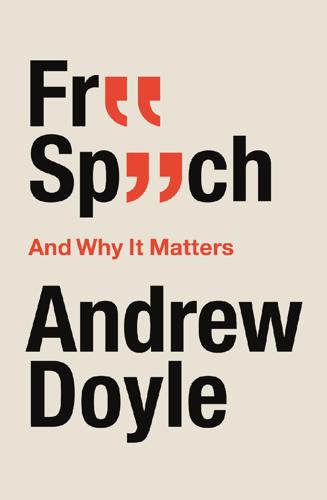
Free Speech And Why It Matters
by
Andrew Doyle
Published 24 Feb 2021
p.84such effects are only ever indirect: The same is true of sexual violence; studies repeatedly show that incidents of rape and sexual assault are not exacerbated when there is increased access to pornographic material. For a brief overview of various international studies, see Michael Castleman, ‘Evidence Mounts: More Porn, Less Sexual Assault’, Psychology Today (14 January 2016). p.85the ‘Streisand effect’: The ‘Streisand effect’ is named after the singer Barbra Streisand, who in 2003 filed a lawsuit against a photographer who had published a photograph of her home in Malibu in order to document coastal erosion. The subsequent publicity ultimately drew considerable attention to the very image that Streisand hoped to suppress.
…
This is not to suggest that there is no debate to be had regarding our susceptibility to propaganda, advertising or persuasion, or indeed that the media and the arts do not have a significant impact on culture. But the idea of a passive public acting mechanically on cues from politicians, journalists and artists appears to have little basis in reality. In any case, I do not share the view that to restrict speech necessarily diminishes the spread of ideas. We have all heard of the ‘Streisand effect’, whereby attempts at censorship and suppression inadvertently draw more attention to the offending material. Whenever I hear demands for a book to be banned, my first thought is invariably: ‘How can I get hold of a copy?’ The same principle applies to disinformation. The term ‘fake news’ is now often deployed as a strategy to delegitimise alternative viewpoints.
…
United States (1917) 22–3 self-censorship 55–8, 59, 63, 64 Shakespeare, William 9, 65 Sheriff, Paula 82 ‘shy voters’ 59 single-sex spaces 26, 71 Skokie, Chicago 18–19 ‘slippery slope’ fallacy 2 social contract 21–4, 35–6, 72 ‘social justice’ 2 social justice activists 83 social media 12, 27, 45, 56–7 see also Internet Socrates 36–7, 74 Socratic Method 9 ‘The Soul of Man Under Socialism’ (Wilde) 58 Spanish Inquisition 67 Spencer, Brenda 78 Spencer, Herbert 43, 44 Spencer, Richard 72 Spinoza, Benedict de 90 state censorship 97 Streicher, Julius 66 ‘Streisand effect’ 85 students 41–7, 61–2, 69–70 Der Stürmer (newspaper) 66 Sunday Express 84 T taking offence 37–8 ‘tall trees’ broadcasts 77, 80 Taubira, Christiane 51 tech giants 11–13, 45 ‘TERFs’ (Trans Exclusionary Radical Feminists) 68 Thomas, RS 58 Titley, Gavan 16 tolerance 31–2 totalitarianism 10 Trainspotting (Boyle) 84 trans people 26, 71 transphobia 71 Trudeau, Justin 50–1 Tutsis 77 Twitter 12 U Ubisoft 30 UNESCO 87 United Kingdom 59, 66–7 United States 10, 11, 59 universities see also higher education decolonising of authors 96 ‘safe spaces’ 70 student unions 29 visiting speakers 41–7, 69–70 University of California, Berkeley 33 University of Toronto 89 V ‘video nasties’ 83–4 violence see inciting violence; words and violence W Watch Dogs (video game) 30 Weimar Republic 66 Weinstein, Bret 62 The Well of Loneliness (Hall) 84 Wellesley College, Massachusetts 69 Whitehouse, Mary 83 Why I’m No Longer Talking to White People About Race (Eddo-Lodge) 27–8 Wilde, Oscar 58, 83 Williams, Evan 12–13 Williams, Joanna 63 withholding opinions 28, 59–60 women 26, 56, 71 women-only spaces 26 words and violence 69–72, 71, 77, 81–2 writers self-censoring 56 Y YouGov 28 Yousaf, Humza 89 Z Zapata, Emiliano 50 Zola, Émile 56
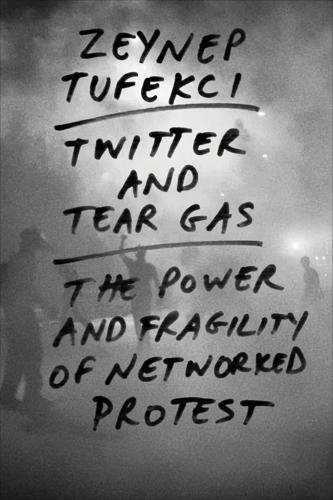
Twitter and Tear Gas: The Power and Fragility of Networked Protest
by
Zeynep Tufekci
Published 14 May 2017
For the government, the communications blackout did not achieve any of the key goals of censorship in the digital era: impeding attention, discouraging people from participation, and trying to deny protesters control over the narrative. In the digital age, attempts at censorship can backfire and bring much more attention to the information that was supposed to be suppressed. This even has a name, the Streisand Effect from an incident in 2003, when Barbra Streisand attempted to keep images of her Malibu villa from appearing in a series of photographs of the California coastline—a project documenting coastal erosion—through legal measures like cease-and-desist letters. Before these attempts, the pictures of her house was an obscure entry posted in a large database, one of more than twelve thousand entries showing pictures of almost the entire California coastline.
…
The photo with her house had been downloaded a mere six times, at least twice by Streisand’s attorneys.4 Search engines had not indexed this picture as connected in any way to Streisand and instead had listed it merely as “image 3850.” All that changed once her attempts to remove it by legal action drew attention to the picture. (Now you know about it, too.) The journalist Mike Masnick dubbed this the “Streisand Effect,” and it plays out again and again in different settings, just as it did in Egypt’s censorship of the internet during Tahrir protests.5 Later governments would not repeat Mubarak’s digitally naïve, counterproductive moves. They were more suited for an era in which the public sphere was dominated solely by print and broadcast mass media that could be centrally cut off once and for all, as the military government in Turkey had been able to do in 1980.
…
They were more suited for an era in which the public sphere was dominated solely by print and broadcast mass media that could be centrally cut off once and for all, as the military government in Turkey had been able to do in 1980. But a new era has brought new methods to the fore—methods that, ironically, include using a version of the Streisand effect as a way to suppress crucial information. To be effective, censorship in the digital era requires a reframing of the goals of censorship not as a total denial of access, which is difficult to achieve, but as a denial of attention, focus, and credibility. In the networked public sphere, the goal of the powerful often is not to convince people of the truth of a particular narrative or to block a particular piece of information from getting out (that is increasingly difficult), but to produce resignation, cynicism, and a sense of disempowerment among the people.
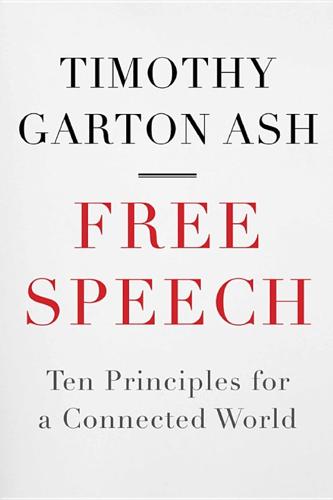
Free Speech: Ten Principles for a Connected World
by
Timothy Garton Ash
Published 23 May 2016
type=source 58. Barendt 2007, 137 59. Barendt 2007, 239–41 60. Whittle et al. 2009, 16 61. see Judith Bruhn, ‘The Topless Duchess’, Free Speech Debate, http://freespeechdebate.com/en/case/the-topless-duchess/ 62. Justin Parkinson, ‘The Perils of the Streisand Effect’, BBC News Magazine, 31 July 2014, http://perma.cc/3Y8A-M8KT, and ‘Streisand Effect’, Wikipedia, http://perma.cc/WAV5-FS9M 63. emails to the author, 3 October 2014 and 15 July 2015 64. see Barendt 2007, 312–16, and generally his magisterial chapter IX on ‘Free Speech and the Judicial Process’ 65. quoted in Law Commission 2013, 63, http://lawcommission.justice.gov.uk/docs/lc340_contempt_of_court_juror_misconduct.pdf.
…
The royal couple secured an injunction in the French courts, but a Danish and a Swedish magazine blithely republished the snaps.61 What is more, I just googled ‘Kate Middleton topless’ and was able to find them with two clicks. This is lèse-majesté sans frontiers: the paparazzi were laughing all the way to the bank and the wife of a future king had, in practice, no effective redress. There is also what has become known as the Streisand effect. In 2003, the American singer-songwriter Barbra Streisand tried to suppress an online photograph documenting coastal erosion, which happened to show her seaside mansion in Malibu, California. The result of her unsuccessful suit for violation of privacy was to give vastly wider publicity to the very image she was trying to suppress.
…
Before she filed her lawsuit, the photograph—one in a series of thousands showing coastal erosion—had only been downloaded from the photographer’s website six times, and two of those downloads were by her lawyers. When the case became known, more than 420,000 people visited the site in one month. The fame of the ‘Streisand effect’ has doubtless brought many more visitors since.62 In cases of defamation, rather than privacy violation, there is somewhat more chance that court proceedings will restore what you want restored—your reputation. But this will happen only after considerable time, stress and expense, and litigation carries the risk that not just the original slur but any other item of dirty linen that the defence lawyers can plausibly bring into the case will be hung out on a very public clothesline.
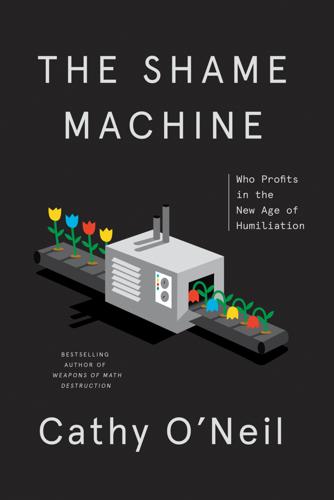
The Shame Machine: Who Profits in the New Age of Humiliation
by
Cathy O'Neil
Published 15 Mar 2022
GO TO NOTE REFERENCE IN TEXT “The democratic inclusion we want”: “A Letter on Justice and Open Debate,” Harper’s Magazine, August 21, 2020, https://harpers.org/a-letter-on-justice-and-open-debate/. GO TO NOTE REFERENCE IN TEXT The singer Barbra Streisand gave birth to this effect: Stacy Conradt, “How Barbra Streisand Inspired the ‘Streisand Effect,’ ” Mental Floss, August 18, 2015, https://www.mentalfloss.com/article/67299/how-barbra-streisand-inspired-streisand-effect. GO TO NOTE REFERENCE IN TEXT too many of the presumed powerless were speaking up: Jennifer Schuessler and Elizabeth A. Harris, “Artists and Writers Warn of an ‘Intolerant Climate.’ Reaction Is Swift,” The New York Times, July 7, 2020, https://www.nytimes.com/2020/07/07/arts/harpers-letter.html.
…
I have spent the past two days in the center of the viral media controversy, instead of observing with interest from the sidelines. Stephens had equipped the peashooter with his own media battleship. He had tried to shame the professor, and the shame instead came raining down on him. Karpf would go on to teach the encounter in his media classes, he wrote, as a case study of the so-called Streisand Effect:[*8] when authority figures attempt to repress online content but instead their actions draw massive attention to it. This happens with predictable frequency. Those on top protect their own interests, and shame their antagonists, under the guise of defending the greater good. In July 2020, as protests against police abuses crested around the world and the novel coronavirus swept the globe, a group of 151 authors, artists, and intellectuals put together what they saw as a written defense of free speech.
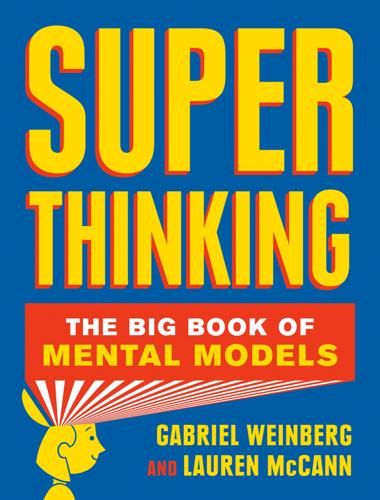
Super Thinking: The Big Book of Mental Models
by
Gabriel Weinberg
and
Lauren McCann
Published 17 Jun 2019
Enterprising ratcatchers, however, would catch and release the rats after just cutting off their tails; that way the rats could go back and reproduce. Whenever you create an incentive structure, you must heed Goodhart’s law and watch out for perverse incentives, lest you be overrun by cobras and rats! The Streisand effect applies to an even more specific situation: when you unintentionally draw more attention to something when you try to hide it. It’s named for entertainer Barbra Streisand, who sued a photographer and website in 2003 for displaying an aerial photo of her mansion, which she wanted to remain private.
…
Before the suit, the image had been downloaded a total of six times from the site; after people saw news stories about the lawsuit, the site was visited hundreds of thousands of times, and now the photo is free to license and is on display on Wikipedia and many other places. As was said of Watergate, It’s not the crime, it’s the cover-up. Streisand Effect A related model to watch out for is the hydra effect, named after the Lernaean Hydra, a beast from Greek mythology that grows two heads for each one that is cut off. When you arrest one drug dealer, they are quickly replaced by another who steps in to meet the demand. When you shut down an internet site where people share illegal movies or music, more pop up in its place.
…
When you shut down an internet site where people share illegal movies or music, more pop up in its place. Regime change in a country can result in an even worse regime. An apt adage is Don’t kick a hornet’s nest, meaning don’t disturb something that is going to create a lot more trouble than it is worth. With all these traps—Goodhart’s law, along with the cobra, hydra, and Streisand effects—if you are going to think about changing a system or situation, you must account for and quickly react to the clever ways people may respond. There will often be individuals who try to game the system or otherwise subvert what you’re trying to do for their personal gain or amusement. If you do engage, another trap to watch out for is the observer effect, where there is an effect on something depending on how you observe it, or even who observes it.
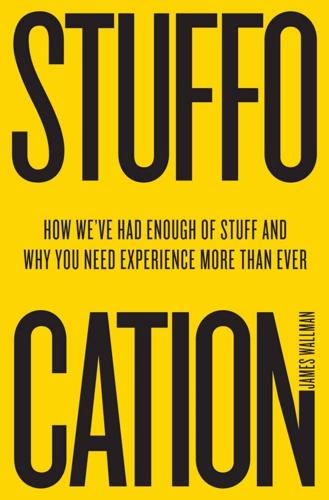
Stuffocation
by
James Wallman
Published 6 Dec 2013
Whenever someone tries to stop people seeing something online – like when the French secret service wants Wikipedia to delete an article about a spy listening station, or Celine Dion does not want people looking at a site called Ridiculous Pictures of Celine Dion – but merely draws more attention to it, that is now called, in honour of the great entertainer, the Streisand effect. The Prince and the Rabbit-Proof Fence In October 1859, Thomas Austin was excited. Like the rest of the family in the village of Baltonsborough in Somerset, England, he had been poor. But in the tough times of the 1840s, like three dozen other Austins, he had emigrated to Australia.
…
Magazines refused to print them, even though Carson was a celebrated author, in case they upset their advertisers. Eventually, she gave up and wrote the book. When it was published, the chemical companies causing the problems did all they could to suppress her message. For all their efforts, though, all they did was create much needed media noise for Silent Spring. By doing so, they not only created a Streisand effect, decades before it would be called this. They also helped shine a light on what has turned out to be one of materialism’s darkest sides: the senseless trashing of the planet we live on. Despite occasional victories, like the banning of the CFCs that harmed the ozone layer, environmental damage has really only got worse through the years.
…
There is nothing the government or business can do to stop them. After all, if they tried to interfere with the Minimalist Woman, the Minimalist Mom, the Minimalist Journey, the Minimalist Freak, The Minimalists, or any of the hundreds of other anti-materialist websites, they would most likely end up creating their own Streisand effect. FOUR I Love to Count: the 33, 47, 69 and 100 Things of Minimalism A few years ago in Sacramento, California, a slim, tanned, immaculately dressed young woman called Cheryl walked in to her walk-in closet. She was followed by another woman, also smartly turned out, by the name of Tammy Strobel.
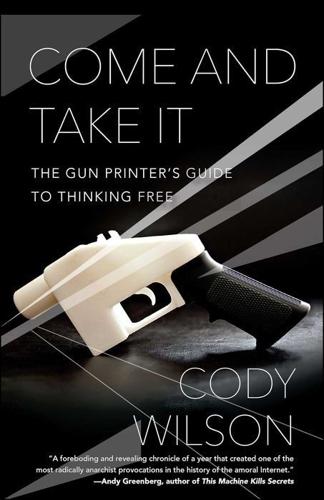
Come and Take It: The Gun Printer's Guide to Thinking Free
by
Cody Wilson
Published 10 Oct 2016
This kind of began with a guy named Phil Zimmerman, who created PGP, a software I’m sure everybody here has heard of, which was the first freely available encryption tool that was uncrackable, even by the government. And this did scare the government. I mean as we heard about earlier, Phil Zimmerman was investigated for exporting PGP as if it were a munition, as if it were a bomb or a missile. And I think really this was the first example of the Streisand effect. I don’t know if you guys have heard of this, but Barbra Streisand in 2003 found a photo of her Malibu beach house online. Never mind the fact that it was actually just one photo of it in a collection of hundreds taken by this environmentalist who was photographing the entire California coastline.
…
They sat around and behind me with their cameras as I finished the video I would put on YouTube at midnight: an announcement that the file was online and free to download. It was brief. Just a few clips of a sunrise and some bombers. “Download today.” A cameraman asked me what would happen if the government stepped in tomorrow. “You can’t plan for good luck like that. But if power did step in, it would guarantee the outcome, wouldn’t it? Something like the Streisand effect.” The file was uploaded and ready to share. The link was in a draft email I had prepared to send to Haroon. So, this was the Wiki Weapon, I thought. The blood physible. It would be received like a signal, I thought. Not of a constructive but of an absolute disorder. A signal of the world as it is.
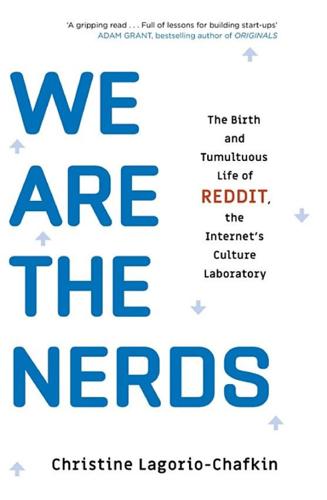
We Are the Nerds: The Birth and Tumultuous Life of Reddit, the Internet's Culture Laboratory
by
Christine Lagorio-Chafkin
Published 1 Oct 2018
This sort of thing had happened before: Something on Reddit would offend an individual or corporation, sometimes ones that did business with Advance Publications. Their complaints typically resulted in corporate calling Ohanian, a smooth talker who by 2009 was accustomed to dealing with this sort of thing. He’d get on the phone with the aggrieved party and explain a concept that had been dubbed “the Streisand effect.” He’d refer the person on the line to the Wikipedia page explaining that doing what the company was typically requesting—removing the offending item—would most likely result in the unintended consequence of publicizing the information more widely due to backlash. In 2003, Barbra Streisand attempted to have photos of her Malibu beach house removed from the Internet, which led to the images being widely disseminated everywhere.
…
Pretty awesome of them.” Redditors took that bait and went into full Internet troll mode to wreak havoc against both Sears and Condé Nast, on the site and off. More than a dozen submissions dedicated to the campaign, now known in Reddit lore as “Fuck Sears,” were upvoted to the front page of Reddit. The Streisand effect was alive and well. Offline, Wired magazine took the brunt of the bile. After finding phone numbers for Wired online, one Redditor set up an auto-dialer. When the staffer would answer, they’d hear a recorded message in a robot-tinged, singsongy voice that Mike Schiraldi recalls said, “In our world never censor the press.”
…
Within a day, the site-wide ban was called off. Martin began apologizing in the press. Wong posted a long-winded explainer of the situation in a private subreddit for moderators, writing that Reddit came down against the ban for three reasons. One, it wouldn’t stop off-site doxing. Two, it wouldn’t hurt Gawker anyway. Three: the Streisand effect. “It would definitely raise the profile of the issue with the general public, and result in headlines like ‘gawker exposes creepster; reddit engages in personal vendetta to defend pedophile,’” he wrote. This did not end the controversy, as Gawker continued to follow the story and tech blogs and major newspapers followed suit, many after having interviewed Erik Martin, who stuck steadfastly to his this-is-a-tricky-free-speech-issue sentiment.
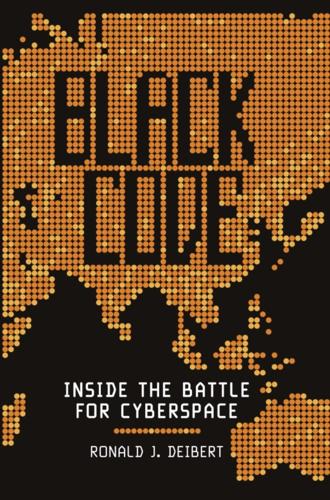
Black Code: Inside the Battle for Cyberspace
by
Ronald J. Deibert
Published 13 May 2013
Our plan to hold a book reception for Access Controlled, the second in a three-part series of books on cyberspace, probably would have been yet another sleepy affair had Chinese authorities not intervened. Instead their intervention had a “Streisand Effect,” a phenomenon, according to Wikipedia, “whereby an attempt to hide or remove a piece of information has the unintended consequence of publicizing the information more widely.” Had the Chinese government not been censoring access to Wikipedia, they might have heard of the “Streisand Effect” and left the book launch alone. Alas, no. In 2009, the annual Internet Governance Forum (IGF) meeting was held in Sharm el-Sheikh, Egypt. An incongruous location – the massive conference centre sits in the middle of the desert like a postmodern pyramid – but swarms of attendees from around the world descended on the facility, lanyards draped around necks, shoulders drooping from the weight of overstuffed conference tote bags.
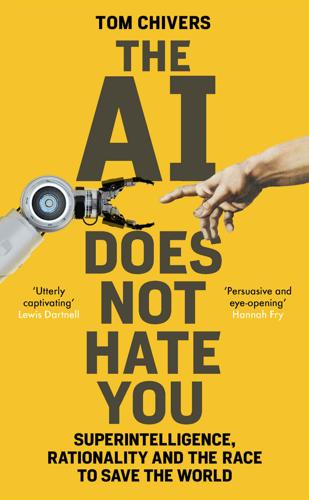
The Rationalist's Guide to the Galaxy: Superintelligent AI and the Geeks Who Are Trying to Save Humanity's Future
by
Tom Chivers
Published 12 Jun 2019
He then deleted Roko’s post and banned all conversation of the topic from LessWrong. To anybody familiar with the internet – and specifically with the principle of the Streisand effect, the idea that attempts to keep things secret online just make them more public – it will be obvious that this was absolutely the worst possible thing that Yudkowsky could have done if he wanted to keep Roko’s Basilisk secret. ‘It showed an incredible lack of understanding of the internet,’ says Paul Crowley. ‘Eliezer invoked the Streisand effect in a massive, massive way. Eliezer’s not the greatest PR manager in the world, but that was really his nadir I think.’ So, from an obscure comment by an obscure commenter somewhere on a somewhat obscure blog, Roko’s Basilisk became a phenomenon.
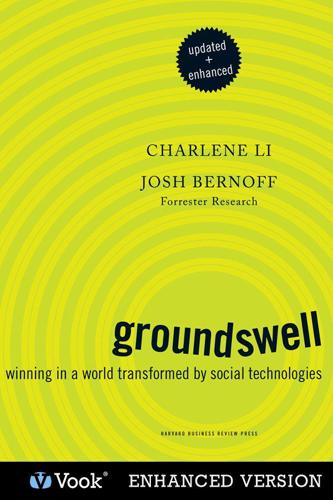
Groundswell: Winning in a World Transformed by Social Technologies
by
Charlene Li
and
Josh Bernoff
Published 23 May 2011
Singer Barbra Streisand insisted that photos of her house be removed, which was about as effective as trying to get rid of a hornet nest by hitting it with a baseball bat. Of course, the resulting publicity caused people to copy the photo and post it to sites all over the Net, easily found using Google Image Search on “Barbra Streisand house.” Mike Masnick, a blogger for Techdirt, coined the term Streisand effect for events where attempts to remove content from the Internet cause it to spread broadly instead.11 So not only is Barbra Streisand’s house still visible online—now her name has become synonymous with futile attempts to remove content from the Net. More than a million viewers have watched a YouTube video posted by law student Brian Finkelstein,12 who filmed a Comcast technician who fell asleep on his couch in 2006, waiting on hold for help from the Comcast home office to fix an Internet problem.
…
In April 2007, a blogger working at a Dunkin’ Donuts supplier in South Korea posted an entry titled “Truth About Dunkin Donuts,” including accusations of food preparation in unsanitary conditions and a picture of a rusty boiler that allegedly contaminated Dunkin’s doughnuts. In a Korean version of the Streisand effect, Dunkin’ Donuts was able to persuade the site hosting the blog to remove the item, but it couldn’t stop the spread of the conversation in reactions from other bloggers.16 The entire episode was covered by the Korea Times,17 surely not the end point that Dunkin’ was hoping for. What happened to these companies will happen to you.
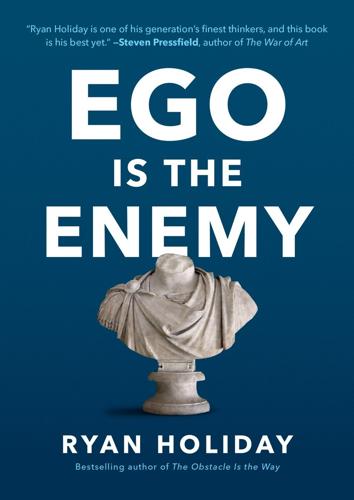
Ego Is the Enemy
by
Ryan Holiday
Published 13 Jun 2016
Fourth, it was his campaign to stop it that secured the movie’s place in popular lore and made it clear the extent to which his drive to control and manipulate would go. Ironically, he cemented his own legacy as a reviled American figure more than any critic ever could have. Thus, the paradox of hate and bitterness. It accomplishes almost exactly the opposite of what we hope it does. In the Internet age, we call this the Streisand effect (named after a similar attempt by the singer and actress Barbra Streisand, who tried to legally remove a photo of her home from the Web. Her actions backfired and far more people saw it than would have had she left the issue alone.) Attempting to destroy something out of hate or ego often ensures that it will be preserved and disseminated forever.
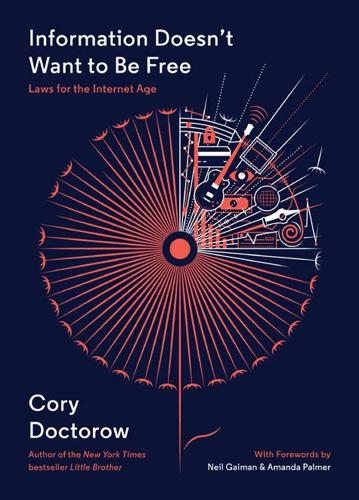
Information Doesn't Want to Be Free: Laws for the Internet Age
by
Cory Doctorow
,
Amanda Palmer
and
Neil Gaiman
Published 18 Nov 2014
If you’ve ever been unfortunate enough to attract a kook-enemy who posts all kinds of crazy conspiracy theories about you on the web, you’ll have discovered that once the stuff is out there, it’s very difficult to remove. Indeed, making a big stink about objectionable material often attracts more attention to it, because everyone wants to know what’s so salacious that they shouldn’t be allowed to see it. Mike Masnick of Techdirt coined the term “Streisand effect” to describe this phenomenon, after Barbra Streisand objected to an aerial shot of her house being included in a survey of coastal erosion in California. She sued the photographer for fifty million dollars, and in the process turned a picture that virtually no one had ever seen (the photo had been downloaded six times, before the lawsuit) into an icon of Internet photography.
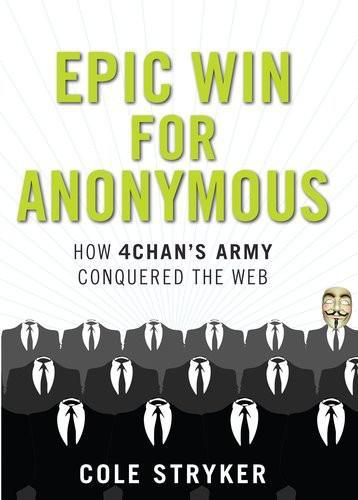
Epic Win for Anonymous: How 4chan's Army Conquered the Web
by
Cole Stryker
Published 14 Jun 2011
In 2006, Scientology lawyers threatened that site’s founder Max Goldberg, resulting in a flare of anti-Scientology sentiment among a younger, more lulz-seeking audience on the heels of a South Park episode that mocked Scientology. Soon, the church became perhaps the first victim of what has come to be known as the Streisand Effect. The term was coined in 2003 by Mike Masnick of Techdirt, when actress and singer Barbra Streisand attempted to suppress the online dissemination of photos of her home, an effort which only drew more attention to the photos. Streisand unsuccessfully sued the photographer, which brought even more publicity.
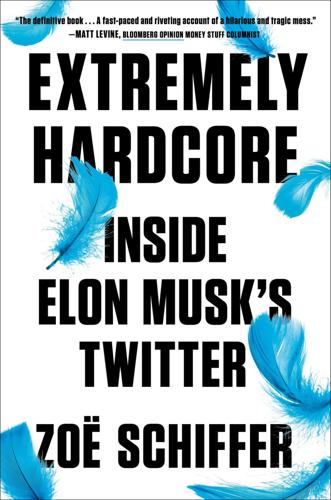
Extremely Hardcore: Inside Elon Musk's Twitter
by
Zoë Schiffer
Published 13 Feb 2024
“Will Twitter make good on their threat to throttle it and label it ‘hateful conduct,’ or will Twitter live up to its great promise?” he asked his followers, in a tweet that was viewed 582,100 times. “This was a mistake by many people at Twitter,” Musk responded. “[The film] is definitely allowed.” By the time the movie was uploaded to Twitter, the Streisand Effect was in full swing, as the controversy became national news. Twitter applied visibility filtering to stop the film from going viral—but that seemed to only make it more popular. The phrase “What is a woman” began trending on Twitter. Within days, The Daily Wire’s tweet that embedded the full film had 170 million views.

Supremacy: AI, ChatGPT, and the Race That Will Change the World
by
Parmy Olson
Mitchell can’t discuss her side of that story because it is legally sensitive. The Stochastic Parrots paper hadn’t been all that earth-shattering in its findings. It was mainly an assemblage of other research work. But as word of the firings spread and the paper got leaked online, it took on a life of its own. Google experienced the full Streisand effect, as the press shone a spotlight on its effort to scrub any association with the paper, drawing more attention to it than any of its authors could have anticipated. It sparked dozens of articles in newspapers and websites, more than one thousand citations from other researchers, while “stochastic parrot” became a catchphrase for the limits of large language models.
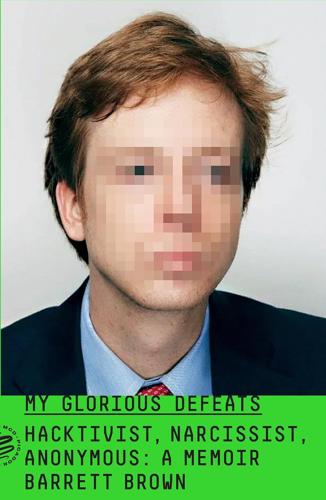
My Glorious Defeats: Hacktivist, Narcissist, Anonymous: A Memoir
by
Barrett Brown
Published 8 Jul 2024
And although this doctrine had been leaked before, it wasn’t readily available—at least, not yet. A funny thing happens when an attempt is made to forbid access to online information. Rather than preventing exposure, such an act tends to guarantee it. This phenomenon is now commonly referred to as the Streisand Effect. In 2003, Barbra Streisand got upset over pictures of her beachfront residence having been posted on some obscure corner of the internet as part of a web-based project documenting coastal erosion. So she got her lawyers involved. By the time the ensuing case was dismissed a few months later, hundreds of thousands of people had viewed this entirely innocuous picture after having learned of the dispute from media reports and online gossip.
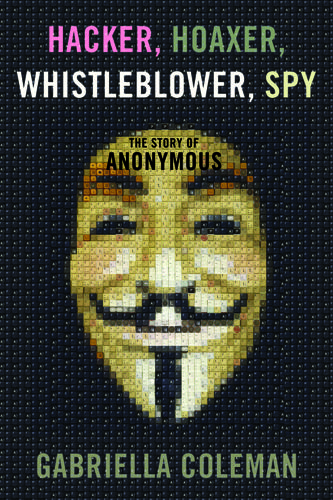
Hacker, Hoaxer, Whistleblower, Spy: The Story of Anonymous
by
Gabriella Coleman
Published 4 Nov 2014
chapter 2 Project Chanology—I Came for the Lulz but Stayed for the Outrage Various contingencies converged to awaken the trickster-trolls from their seedy 4chan underworld. But if we were to single out one event most responsible for this, it would be the leaking onto the Internet of a Scientology recruitment video featuring Tom Cruise, Scientology’s celebrity of celebrities. “Streisand was in full effect,” quipped one Anon. “The Streisand Effect” is a well-known Internet phenomenon in which an attempt to censor a piece of information has the inverse effect: more people want to see it in order to understand the motivation for the censorship, and thus it spreads much more widely than it would have if left alone. The phenomenon is named after Barbra Streisand’s attempt in 2003 to bar, via a multi-million dollar lawsuit, aerial photographs of her Malibu home from being published.
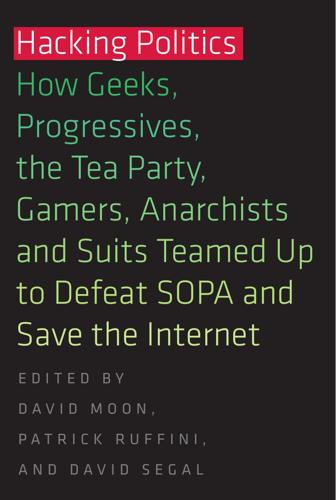
Hacking Politics: How Geeks, Progressives, the Tea Party, Gamers, Anarchists and Suits Teamed Up to Defeat SOPA and Save the Internet
by
David Moon
,
Patrick Ruffini
,
David Segal
,
Aaron Swartz
,
Lawrence Lessig
,
Cory Doctorow
,
Zoe Lofgren
,
Jamie Laurie
,
Ron Paul
,
Mike Masnick
,
Kim Dotcom
,
Tiffiniy Cheng
,
Alexis Ohanian
,
Nicole Powers
and
Josh Levy
Published 30 Apr 2013
Essentially every major conservative or libertarian group on record has come out in favor of copyright reform—and there are several others that have told me privately that they too support these types of reforms. When our office received push-back, the decision was made, against my protests, to pull the memo online but not to officially retract or disavow it. In the process, via the so-called Streisand Effect—the singer tried to have photos of her mansion pulled from the web, her request angered free speech activists, which led to the photos spreading far more virally than if she’d kept her mouth shut—the memo only became a bigger sensation. During this time I was approached by a number of staffers who told me that their bosses supported copyright reform and a few even talked about patent reform.

Elon Musk
by
Walter Isaacson
Published 11 Sep 2023
The users who were pressuring advertisers to boycott Twitter were engaged in blackmail, he said, and should be banned. Roth was appalled. There was no rule on Twitter against advocating boycotts. It was done all the time. Indeed, it was the type of advocacy, Roth felt, that made Twitter important. Plus, there was the Barbra Streisand effect, named after the singer sued a photographer for posting a photo of her home, thus causing the photo to get a thousand times more attention. Banning tweets that called for an advertising boycott would increase awareness of the boycott. “I think tonight is the night I’m going to have to quit,” Roth told his husband.